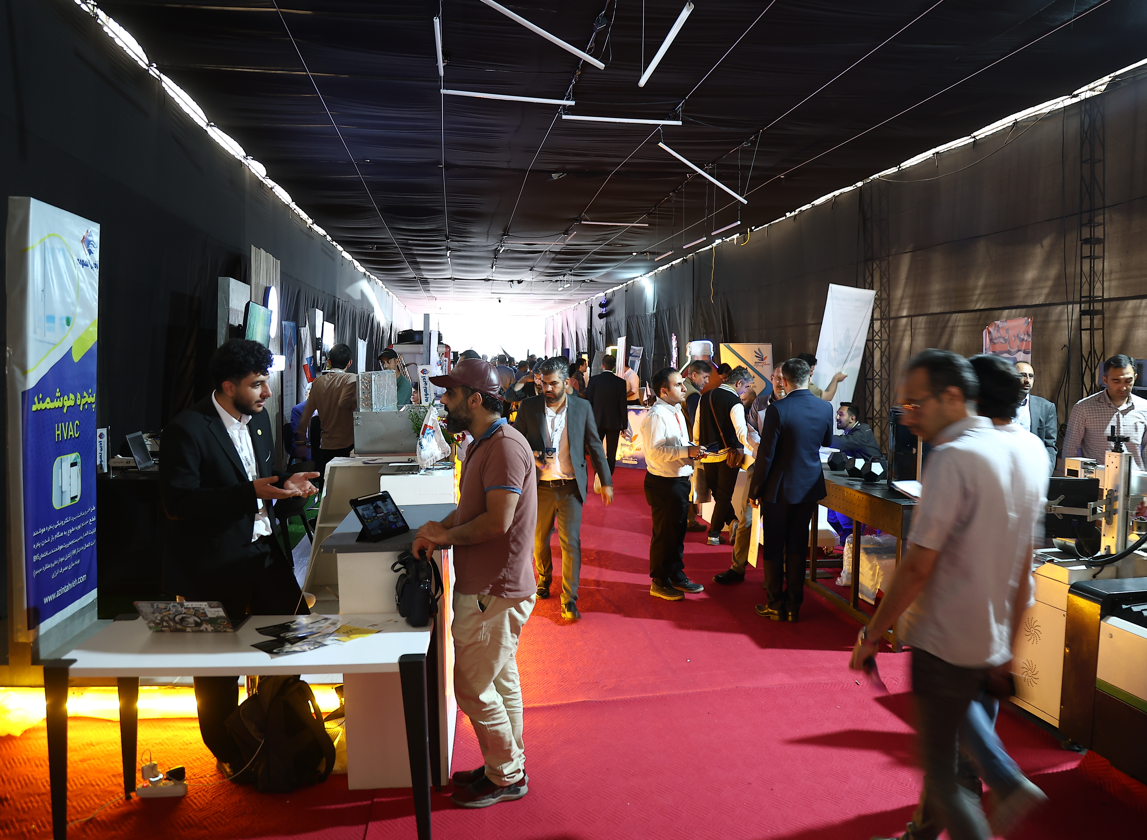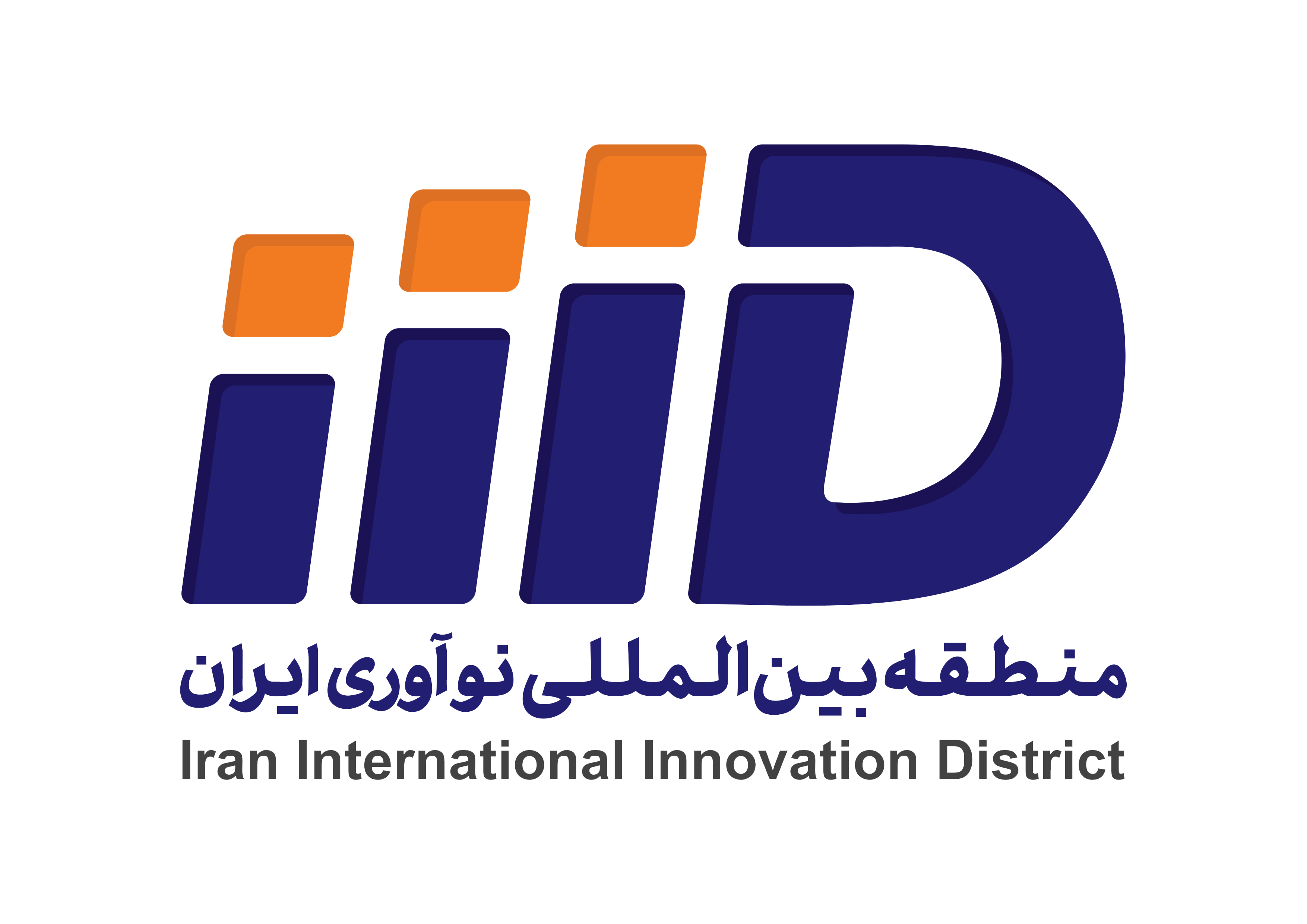Unveiling Top Innovations and Exploring AI’s Industrial Impact at Iran’s Largest Tech Gathering
Highlights of Day Two at INOTEX 2025: From Future Tech to Social Business Insights

On the second day of INOTEX 2025, held on April 29, 2025, five cutting-edge technological products were unveiled, while discussions on artificial intelligence (AI) and social entrepreneurship took center stage at Iran’s premier innovation event.
During the second day of Iran’s largest technology and innovation gathering, five top tech products were introduced in the presence of Mohammad Sadegh Khayatian, President of the Iran National Innovation Fund (INIF). These products included an automatic tree grafting machine, chromatography resin for blood plasma purification, a BENTLY NEVADA 3500-compatible rotating machinery monitoring system, an advanced lithium-ion battery, and a digital twin platform.
Khayatian highlighted INOTEX’s unique position in Southwest Asia as a vital platform for networking and knowledge exchange, capable of filling the region’s gap for such exhibitions. He also announced financial support, stating that the INIF is prepared to offer loans of up to 1 trillion IRR (approximately 23.8 million USD) for contracted productions, with hopes for significant outcomes by the end of 2025.
In another development, a memorandum of understanding was signed between Iman Sazan Tadbir Pars Company and the Iran International Innovation District (IIID) to localize technology. Under this agreement, IIID will identify tech companies to address Iman Sazan’s technological needs, aiming to boost efficiency and reduce costs through innovation.
The second day of the National AI Conference featured speeches by university faculty and experts in semiconductors and AI. Ali Haroonabadi, Head of the Virtual Space and AI Faculty at Azad University, discussed AI’s transformative role in industry, citing recommendation systems like Amazon and Alibaba as examples. He predicted robots would replace humans in medical and educational roles and emphasized the influence of four major social media platforms on future trade and industry, alongside the benefits of robots and big data.
Mohammad Reza Khalesi, a faculty member at Tarbiat Modares University, analyzed AI project failures in mining, noting that only 20-30% reach full-scale implementation, indicating a 70% failure rate. He categorized success and failure factors into technical, strategic, and roadmap aspects, advocating for hybrid models and data processing improvements.
Panels at the AI Conference also covered human resources in semiconductors and AI, infrastructure needs, job market challenges for graduates, brain drain due to limited opportunities, and innovative robotic projects from the University of Tehran’s Human-Robot Lab.
Additionally, Mohammad Kolahi, Deputy for Credit and Commercialization at the Fund for Development of Advanced Technologies under Bimeh Sarmad, introduced the “NovinCrowd” crowdfunding platform. As Iran’s first official dual-currency crowdfunding platform, it enables international investment for export-oriented tech projects. Kolahi also unveiled “FanavarCard,” a super-app offering integrated financial, banking, and insurance services to knowledge-based firms, backed by 18 specialized financial institutions to drive Iran’s knowledge-based economy.
At the “Future Station” event, speakers addressed innovation challenges, technology adoption in organizations, and regulatory hurdles. Mahdi Taleb, IT Deputy at Mellat Credit Institute, stressed IT’s critical role in organizational survival and growth, sharing past resistance to AI proposals in banking. He noted only 12 projects are registered in the Central Bank’s sandbox, reflecting business reluctance toward technology.
Other discussions included cultural resistance to new tech, the threat-focused stance of governance versus opportunity-driven business approaches, and the rise of contactless payments and wearable tech, with Mahdi Momeni of “AzkiVam” warning of security risks like skimming and privacy concerns. Behzad Teimourian, a blockchain researcher, explored the evolving metaverse, highlighting platforms like Decentraland and The Sandbox as growing investment spaces with real-world applications.
The Governance and Legislation Forum featured the “Fractal Game,” simulating public policy decision-making on AI’s future, while panels on social innovation and social business experiences offered insights into addressing economic and social challenges. Mahdi Maskani, Economic Advisor to the Parliament Speaker, emphasized localizing social business models and reforming bureaucratic structures. Social entrepreneurs shared success stories, including empowering communities through sustainable models like cooperative schools and fabric bag sales for employment.
In the health startup panel, Peiman Bakhshandeh of Himeh medical equipment platform noted that turning an idea into a product in Iran requires three years and about 300,000 USD, criticizing currency disparities in medical imports versus local production. Mohammad Reza Zahedi of Pishgaman Health Investment Group highlighted digital health and fintech challenges, advocating for digital clinics to support doctors alongside traditional care.
Quick Access

Address: Pardis Technology Park, 20th km of Damavand Road (Main Stresst), Tehran I.R. Iran.
Postal Code: 1657163871

Tel: 76250250 _ 021

Fax: 76250100 _ 021
E-mail: info@techpark.ir

website:iiid.tech









